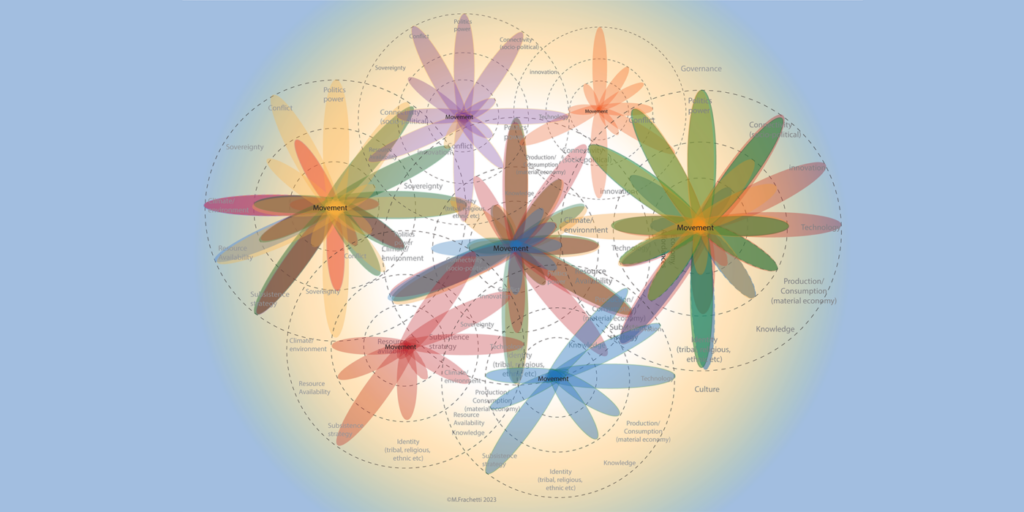Universal device will allow transdisciplinary collaboration globally
Spurred by the current climate crisis, there has been a heightened attention within the scientific community in recent years to how past climate variation contributed to historic human migration and other behaviors.
Now, an international group of scientists — including archaeologists, historians, climate scientists, paleo-scientists, a volcanologist and others — are calling for a strengthened commitment to transdisciplinary collaboration to study past and present human-environmental interactions, which they say will advance our understanding of these complex, entangled histories. Their recommendations were published Nov. 22 in Science Advances.
In doing so, the group has introduced a new tool, the “dahliagram,” to enable researchers to analyze and visualize a wide array of quantitative and qualitative knowledge from diverse disciplinary sources and epistemological backgrounds.
“Backed by higher-resolution data concerning past climates, environmental change is increasingly seen as a crucial factor in debates concerning social, political and economic change — and human behavior generally — through time and space,” said Michael Frachetti, a professor of archaeology in Arts & Sciences at Washington University in St. Louis, and a lead author of the paper.
